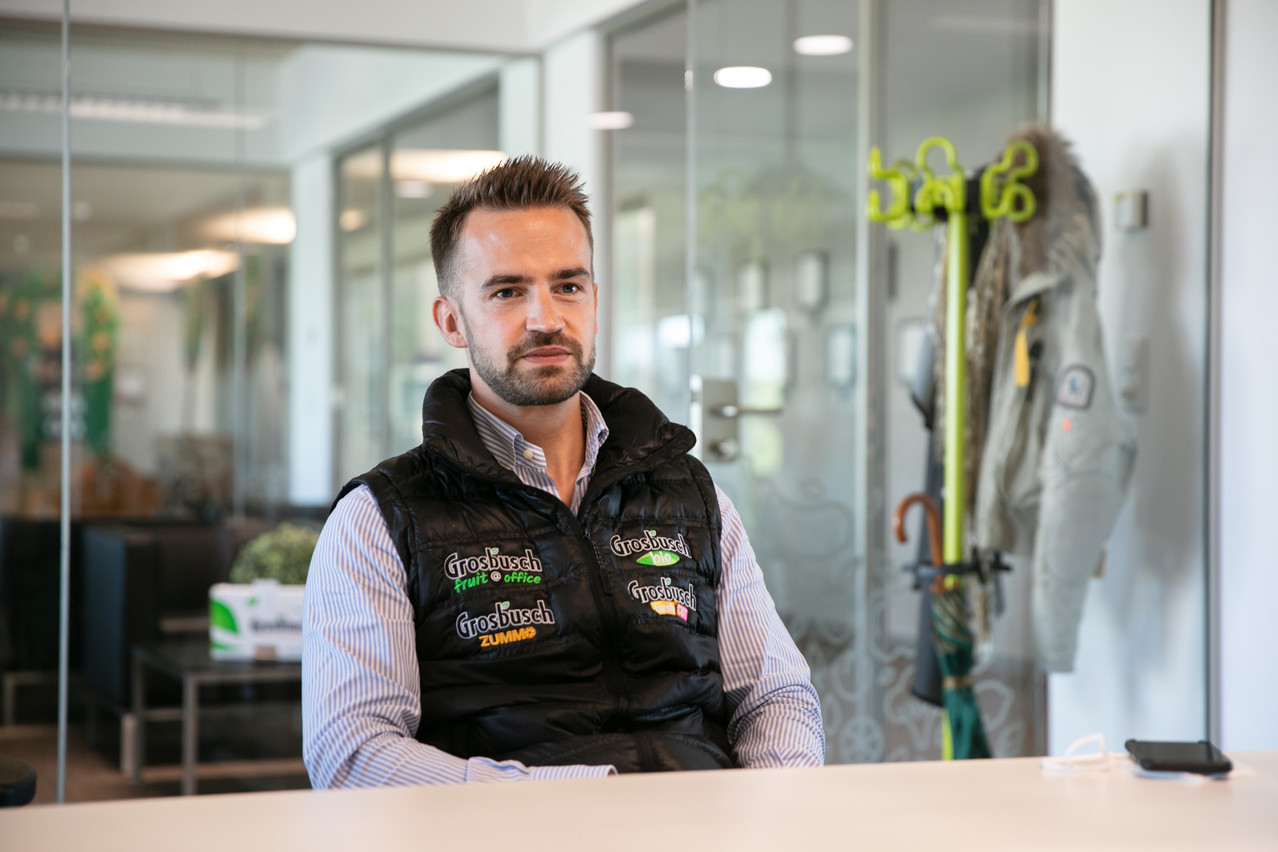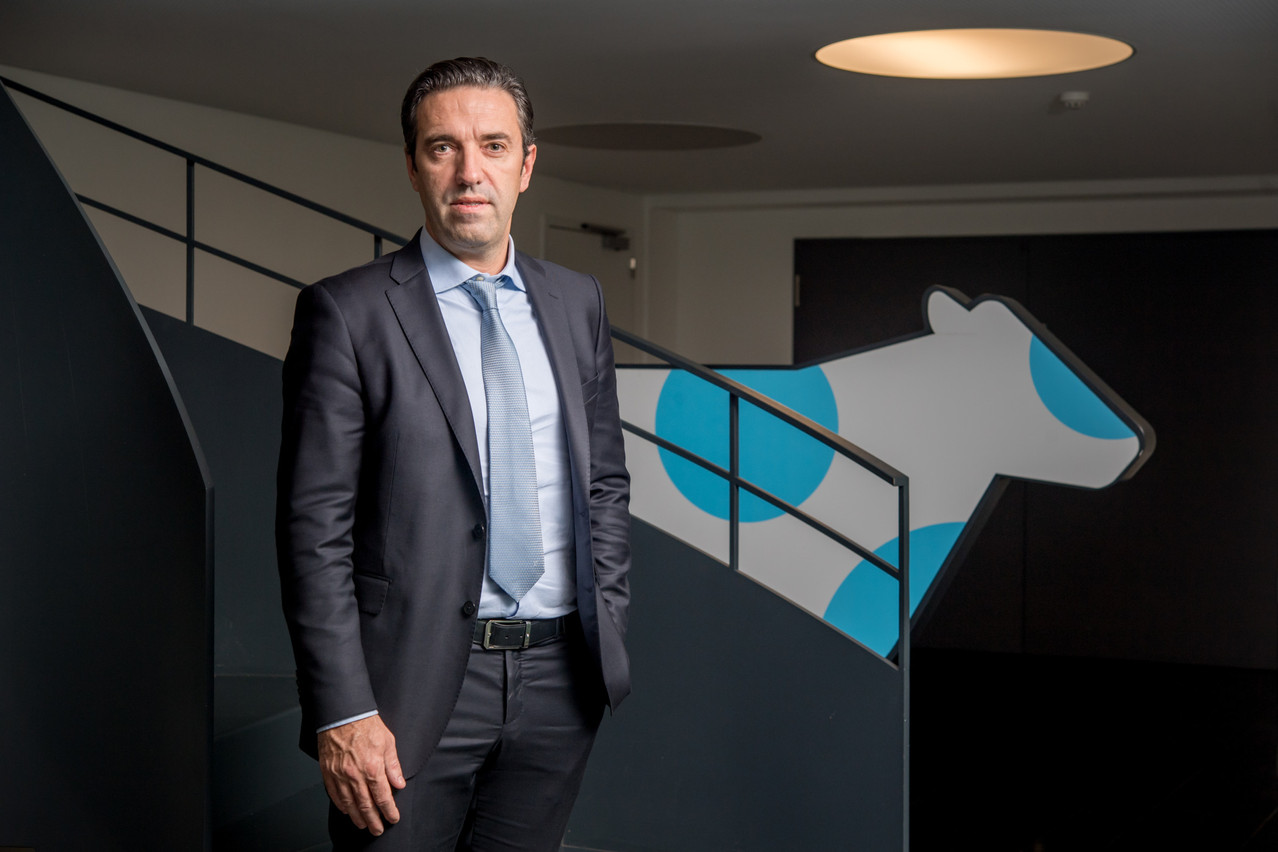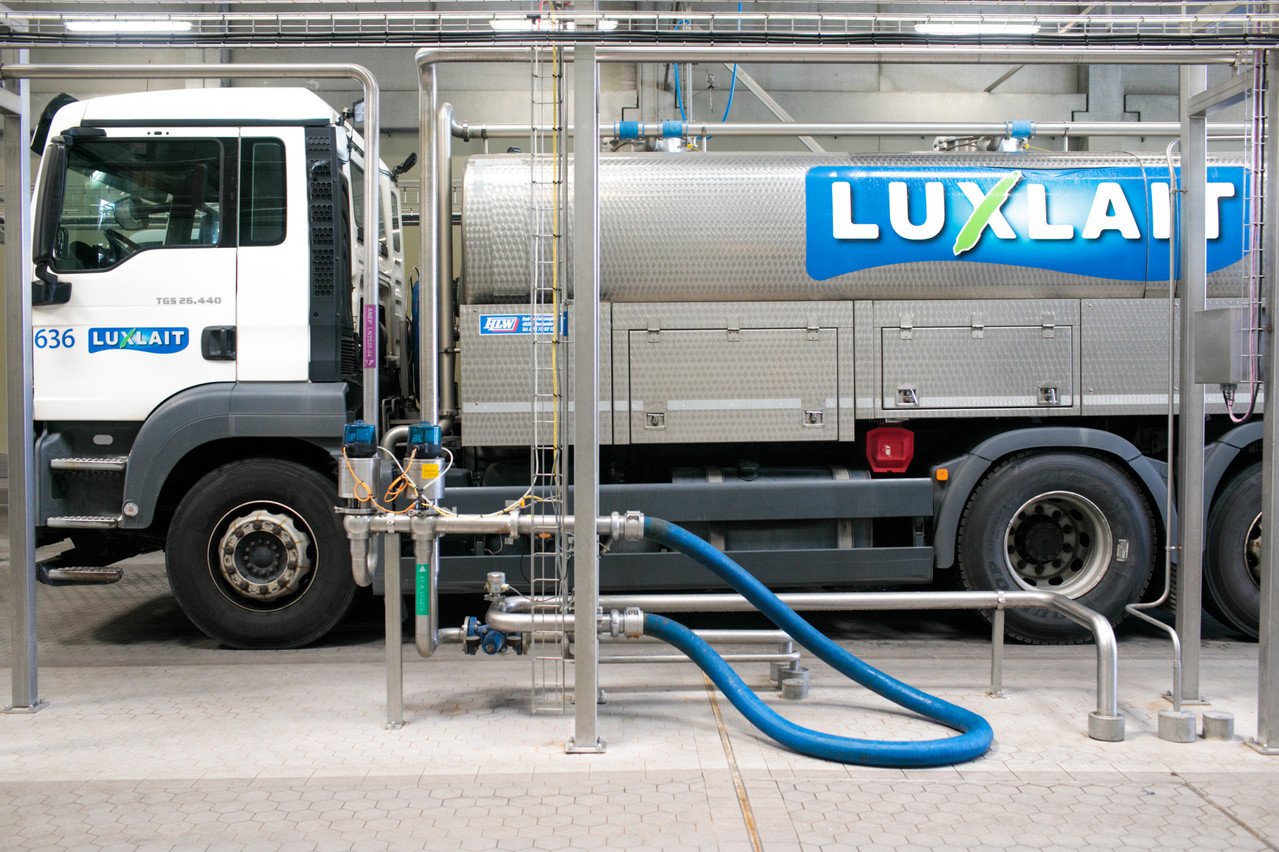“Various industries knew that at some point the boomerang launched at the first lockdown would come back, and we are now feeling the counter-effects of the beginning of the crisis," observes , managing director of the family business specialising in the import and distribution of fresh fruit and vegetables.
Grosbusch is currently facing a major challenge: to respond to the increase in its costs and to maintain its profitability without penalising the customer. Transport costs, for example, have risen by 5%, but this inflation conceals major disparities: "The cost of maritime transport has tripled and sometimes even quadrupled,” stresses the manager of the company that has 270 employees.

"The cost of maritime transport has tripled and sometimes even quadrupled," says Goy Grosbusch. (Photo: Romain Gamba/Maison Moderne)
Although he is currently spared the increase in energy bills due to a long-term contract, Grosbusch is aware of the sword of Damocles that will be hanging over his head once the contract ends. Although the company has photovoltaic panels, these are not sufficient to meet all its energy needs.
The context also affects the availability of products, since the rise in energy prices has led some producers to stop growing produce in heated greenhouses. And with less supply comes the potential for higher prices. Furthermore, consumers want cardboard packaging and its soaring prices are leading to a doubling of prices, at least.
All these factors inexorably lead to higher prices, but by how much? "Negotiations are underway," says Grosbusch, for whom the lack of transparency on the evolution of costs is a major obstacle.
+150% in energy costs
The same goes for , CEO of Luxlait, who does not know when this inflationary spiral will end: "What is certain is that we will never return to pre-crisis levels.” Currently in the process of increasing the price of his products by between 5% and 10%, the manager is also negotiating with supermarket chains and the hotel and catering industry. This is not an easy task, according to Gerard, given the general increase in expenditure items throughout the entire supply chain.
"If we didn't raise our prices, it would mean that Luxlait was making too much money," he says. On the one hand, the cooperative has to pay its farmers, whose costs have soared: "We're talking about a 15% to 20% increase in the price of milk, but on 170 million litres per year, that's not negligible.” On the other hand, Luxlait’s energy costs have soared by 150%, the price of ingredients, such as fruit, has doubled and, finally, packaging has reached unprecedented price levels. "A wooden pallet has risen from €8 to almost €20," says Gerard.

"If we didn't raise our prices, it would mean that Luxlait was making too much money," says CEO Gilles Gerard. (Photo: Nader Ghavami/Maison Moderne)
For the time being, the producer excludes any reduction in the size of the packaging, contrary to what is practised in the large industrial groups. "On the other hand, if everyone starts to do this, we will have to do it, at the risk of finding ourselves 'out of the market' with a selling price that is too high compared to the competition," says Gerard.
Off the shelf
In the south of the country, pasta manufacturer Maxim has seen its raw material, durum wheat semolina, double to almost €800 per tonne by the end of 2021. Its technical and commercial director, Dario Battestini, has increased his prices "by 17% to 19%", but not all his customers have accepted this revision. "Our brand is currently excluded from the range of a major Belgian retailer because it does not accept the price increase," explains the entrepreneur.
He points out that his SME continued to supply the shelves of Luxembourg supermarkets at the height of the first lockdown, when the shelves were empty. Today, costs are soaring and there is no end in sight, given the upcoming wage indexation. "I'm sure we'll have to review prices again before the summer," says Battestini.
Read also
Munhowen, the subsidiary of the Brasserie Nationale dedicated to the distribution of drinks, had already indexed its tariffs by 3.5% at the beginning of this year to meet the increase in its costs, which it estimates at €1m. Its biggest problem is undoubtedly energy, with a €400,000 increase in its electricity bill and a further €250,000 for diesel. For the time being, the company is protected by long-term contracts for gas and malt, two items that could threaten its cash flow in the longer term.
General manager Frédéric De Radiguès says the automatic indexation of the 220 salaries at Munhowen, t represents an additional cost of €300,000 expected for the spring. "If we were to have two indexations this year, I fear that we would have to increase our prices significantly," he warns.
This story was first published in French on . It has been translated and edited for Delano.
